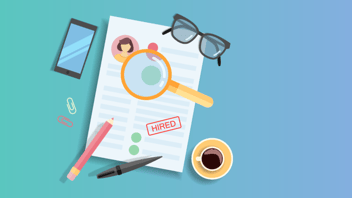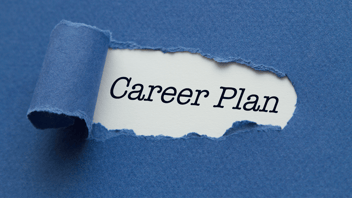
Tips to nail your next job interview

So, you’ve secured an interview for your dream company. Interviews can be nerve-racking, so we’ve compiled some tips to consider when going into your next interview.
There’s no perfect interview scenario and every interviewer will have different requirements of what they’re looking for, capabilities and skills aside. We've prepared a checklist of things to keep in mind when going into an interview.
Interview tips:
1. Prepare
Research the company, the role, the history, and the leadership team. You can use websites such as Glassdoor, LinkedIn, Seek, and Indeed to research your potential employer. Go through the company’s website and social media channels to familiarise yourself with their business. Go beyond merely reading the company blurb - familiarise yourself with their company initiatives, clients, and any other information relevant to the role you are going for.
Ask your recruiter for advice and guidance as to anything specific you should know and understand in advance. You can also use LinkedIn to research your interviewer and potential team.
Know your own CV. You will likely be asked questions taken straight from it, so if you’ve got wins and career highlights in it, make sure that you know the numbers correctly. You don’t want to be caught off-guard not knowing your own history.
Prepare yourself for the obvious questions: “Tell me about yourself, why are you interested in this role, why do you want to work for this company?”
RELATED: How to prepare for a video job interview
2. Be curious, ask questions
It’s the adage, “you’re interviewing them as well”. Be genuinely curious about the role and the company. Ask questions that will give you more clarity around the role, culture, structure, and environment where you will be working. Questions show passion and interest, as well as being an active and curious interviewee.
Stumped what you can ask? Some basic questions may include:
- How would you describe the characteristics of someone who would succeed in this role?
- If I were in this position, how would my performance be measured? How often?
- What departments/teams does this team work with regularly? How do these departments typically collaborate and what does that process look like?
- What are some of the challenges someone in this role would face?
- Based on what has been discussed today, do you have any immediate concerns about my capability to do the role?
RELATED: 5 questions you should ask at every interview
3. Don’t speak negatively about your current/previous employer
It might be tempting or even feel that it will make you seem more eager for the role, but keep it professional and speak pragmatically about your previous/current employer. Companies are looking for potential employees who are conflict-free and able to overcome different situations. Try to focus on what you’ve learned and gained from your previous employment situations.
4. Prepare for behavioural-based questions.
This is an interview technique used to assess your capabilities based on your past behaviour. Have a think about questions the interviewer might ask about your work experience and prepare examples you can provide them with prior to the interview.
When answering these questions, we recommend following the STAR format:
S – Situation: Describe a specific situation. Don’t be general here or talk about several situations, stick to the one.
T – Task: What was your role?
A – Action: What did you do?
READ MORE: How to prepare for an interview using the star model
5. Be authentic
Be yourself as much as you can be. Interviews may present a stressful situation, however, you need to present a consistent image that is true to the person you will be when doing the role. Always be truthful about your skills and experience, including any areas for development – the last thing you need is to land a role you are not well suited for. Most importantly, show your personality and how your values align with the companies. Employers are looking for value alignment and cultural fit as much as they’re looking for capability and skills.
6. Don’t be late, in fact – be early
Plan your schedule to be 10 to 15 minutes early – traffic, roadwork, and unexpected situations can happen, so allow more travel time to avoid getting stressed right before your interview. Also note, arriving too early can be an inconvenience to the person you’re meeting with, so arrive ready for the interview 5 to 10 mins prior.
Whatever you do, don’t be late! Even if you arrive just on time but have been rushing, you’ll be flustered and distracted. You want to put your best foot forward, so being late is a big red flag for hiring managers.
7. Send a follow-up
Speak to your recruiter about the best time to follow up after the interview. Sending a follow-up email is a good way to reconfirm your interest. The follow-up should typically focus on thanking the person for their time and asking if there’s anything else you need to do in order to advance in the process.
To receive job notifications straight to your inbox, register to our candidate portal. For more career advice articles, visit our blogs page.
Related


Developing a Career Plan
Just as any successful organisation meticulously crafts a clear and strategic business plan to...

What to expect when meeting a recruiter for an interview
Meeting with a recruitment consultant is an opportunity to demonstrate how you will present for a...


 Accessibility
Accessibility
